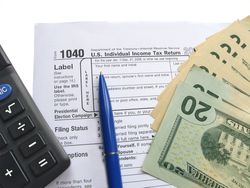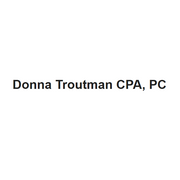An Accountant on How Changes to the Tax Code Will Affect You

Changes made to the tax code late last year are just now beginning to take effect. It’s crucial you understand how these alterations will impact you, from which tax bracket you belong in to which deductions you’re eligible for. In Lewisburg, PA, Donna J. Troutman CPA PC ensures her clients file their taxes correctly. As a certified public accountant, she uses her training to make sense of complex laws and regulations. Here, she discusses how the new changes affect you.
2018 Tax Changes: An Accountant Offers Insights
Child Tax Credit Alterations
The Child Tax Credit aims to ease the financial burden on parents. The new tax law has increased this credit from $1,000 to $2,000, with those who don’t earn enough income to file taxes having access to $1,400 in assistance. The threshold for qualifying for this credit has also increased from $110,000 to $400,000 for married couples who are filing jointly. If you have dependents who are not children, such as aging relatives you care for, you can claim a $500 credit for each person.
Standard Deduction Tweaks
In the past, it was possible for a single filer to claim a personal exemption of $4,150 along with the standard deduction of $6,500, for a total of $10,650. This year, the standard amount is $12,000, while the personal exemption has been eliminated. For married couples, the standard deduction has been increased from $12,700 to $24,000.
Limits on State & Local Tax Deductions
State and local tax (sometimes referred to as SALT) deductions were slated to be eliminated with the new legislation. Instead, a $10,000 limit was imposed on SALT deductions, which include income and property taxes. Many other ones were eliminated, including expenses for moving and tax preparation, as well as losses caused by theft.
Changes to Tax Brackets
 While the number of tax brackets has remained the same under the new laws, there have been some changes to the tax rates themselves. Lower ones prevail, but there are differences depending on your filing status. For instance, a single filer making between $38,701 and $82,500 will be taxed at a rate of 22% instead of 25%. For those filing jointly, a taxable income ranging between $19,051 and $77,400 will be taxed at 12% instead of 15%.
While the number of tax brackets has remained the same under the new laws, there have been some changes to the tax rates themselves. Lower ones prevail, but there are differences depending on your filing status. For instance, a single filer making between $38,701 and $82,500 will be taxed at a rate of 22% instead of 25%. For those filing jointly, a taxable income ranging between $19,051 and $77,400 will be taxed at 12% instead of 15%.
Donna J. Troutman CPA PC provides indispensable guidance to clients, whether they need assistance with business accounting or individual returns. Call (570) 523-7337 today to learn more about acquiring tax help. You can also visit this Lewisburg accountant online for additional information about her services.
About the Business
Have a question? Ask the experts!
Send your question

